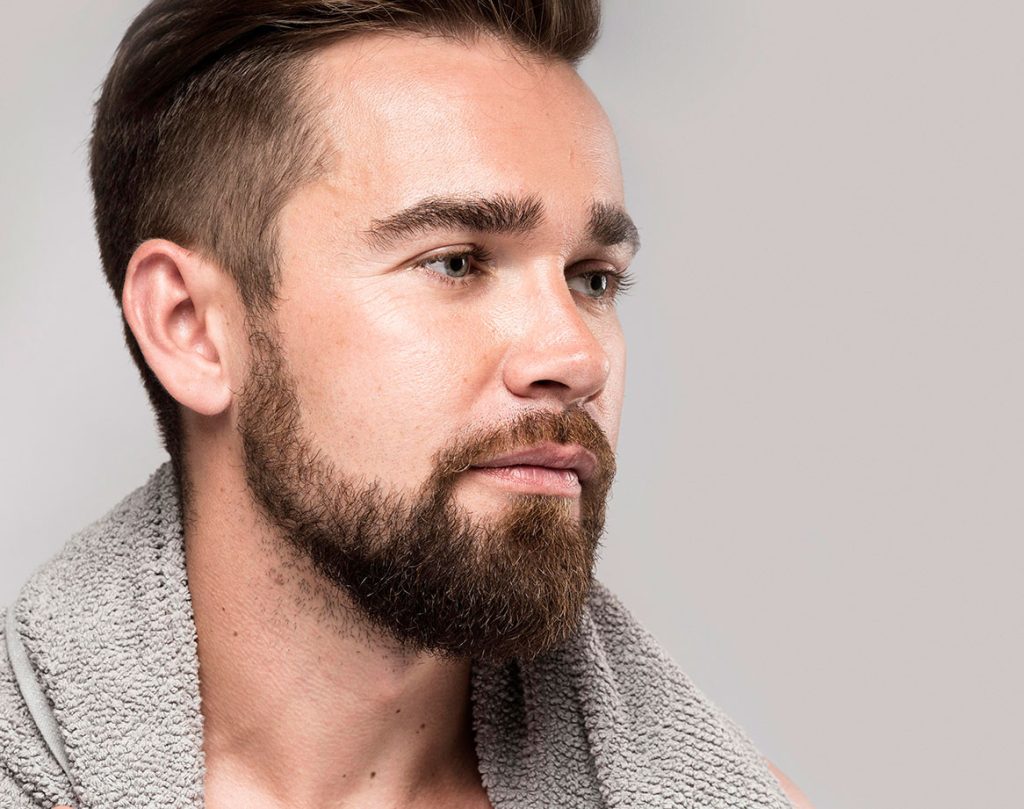Beard Transplant in Turkey
Redefine Your Masculinity with a Fuller Beard
Can’t grow a thick or even beard no matter how hard you try? Whether it’s due to genetics, scarring, or hormonal imbalance — a beard transplant offers a permanent and natural-looking solution to help you achieve the facial hair style you’ve always wanted.
At Health in Turkey, we connect you with top-tier hair restoration specialists who perform minimally invasive beard transplants using the latest techniques in accredited Turkish clinics — at a fraction of the cost in North America.

What is a Beard Transplant?
A beard transplant is a cosmetic procedure that involves extracting hair follicles (usually from the back of the scalp) and transplanting them into the beard area. The goal is to enhance facial hair density or restore hair in patchy or bare areas like the:
Cheeks
Jawline
Chin
Mustache
Sideburns
Beard scars or gaps
We use modern methods like FUE (Follicular Unit Extraction) or DHI (Direct Hair Implantation) for precise placement, natural angle, and high graft survival.
Benefits of Beard Transplant
✅ Fuller, natural-looking beard
🧬 Uses your own hair – no rejection or allergic reaction
🧔♂️ Shape and define your facial features
🚫 Covers scars, burns, or patchy areas
🔁 Permanent results after shedding and regrowth cycle
💉 Minimally invasive with no major scarring
Beard Transplant Cost in Turkey
| Type | Estimated Cost (CAD) |
|---|---|
| FUE Beard Transplant (Standard) | $1,600 – $2,200 |
| DHI Beard Transplant | $2,000 – $2,800 |
✅ Includes: doctor consultation, procedure, PRP session, hotel stay, airport transfers, and post-op care kit.
Beard Transplant Procedure
Consultation & Planning
Your face shape and beard goals are assessed. A custom beard design is created.Donor Hair Extraction
Hair is extracted from the back of your scalp using FUE or DHI methods under local anesthesia.Graft Preparation & Sorting
Hair follicles are separated based on thickness and quality.Implantation into Beard Area
Grafts are placed at specific angles and directions for a natural look.Recovery
Scabs fall off within 7–10 days. New hair starts growing in 2–3 months.
Key Info At a Glance
| Details | Info |
|---|---|
| Duration | 4 – 6 hours |
| Anesthesia | Local |
| Hospital Stay | Not required (outpatient) |
| Return to Work | 3 – 5 days |
| Final Results | 6 – 12 months |
Who is a Good Candidate?
Healthy men with sufficient donor hair on scalp (usually the back)
Patchy or uneven beard growth
Men who’ve lost beard hair due to trauma or surgery
Non-smokers or those willing to quit during healing
Realistic expectations and commitment to post-op care
Why Get a Beard Transplant in Turkey?
🇹🇷 Renowned surgeons and clinics with thousands of successful cases
💸 Costs 60–70% less than in Canada or the US
🏥 Modern facilities with advanced FUE & DHI technology
🧑⚕️ English-speaking medical teams and patient coordinators
🌆 Recovery in vibrant Turkish cities like Istanbul or Izmir
Get the Beard You’ve Always Wanted
At Health in Turkey, we make your transformation stress-free. From free online consultation to door-to-door service, we handle everything so you can focus on your new look.
🌐 Website: www.healthinturkey.ca
📧 Email: info@healthinturkey.ca
📞 Phone: 519-494-3673
💬 Book your FREE beard assessment now and take the first step toward your ideal facial hair!
FAQ – Beard Transplant in Turkey
Q: Is a beard transplant permanent?
A: Yes. The transplanted hair falls out within a few weeks (normal shedding phase), and new permanent hair starts growing in 2–3 months, with full results in 8–12 months.
Q: Will it look natural?
A: Absolutely. Surgeons place each graft at precise angles and directions to mimic natural beard growth.
Q: Can I shave after the transplant?
A: You’ll need to avoid shaving for the first 4–6 weeks. Once the hair is established, it can be groomed and trimmed like a normal beard.
Q: Are there any scars?
A: FUE and DHI techniques leave tiny, nearly invisible scars, which fade over time and are covered by surrounding hair.
Q: Is it painful?
A: Most patients report minimal discomfort thanks to local anesthesia. Post-op tenderness is manageable with medication.
